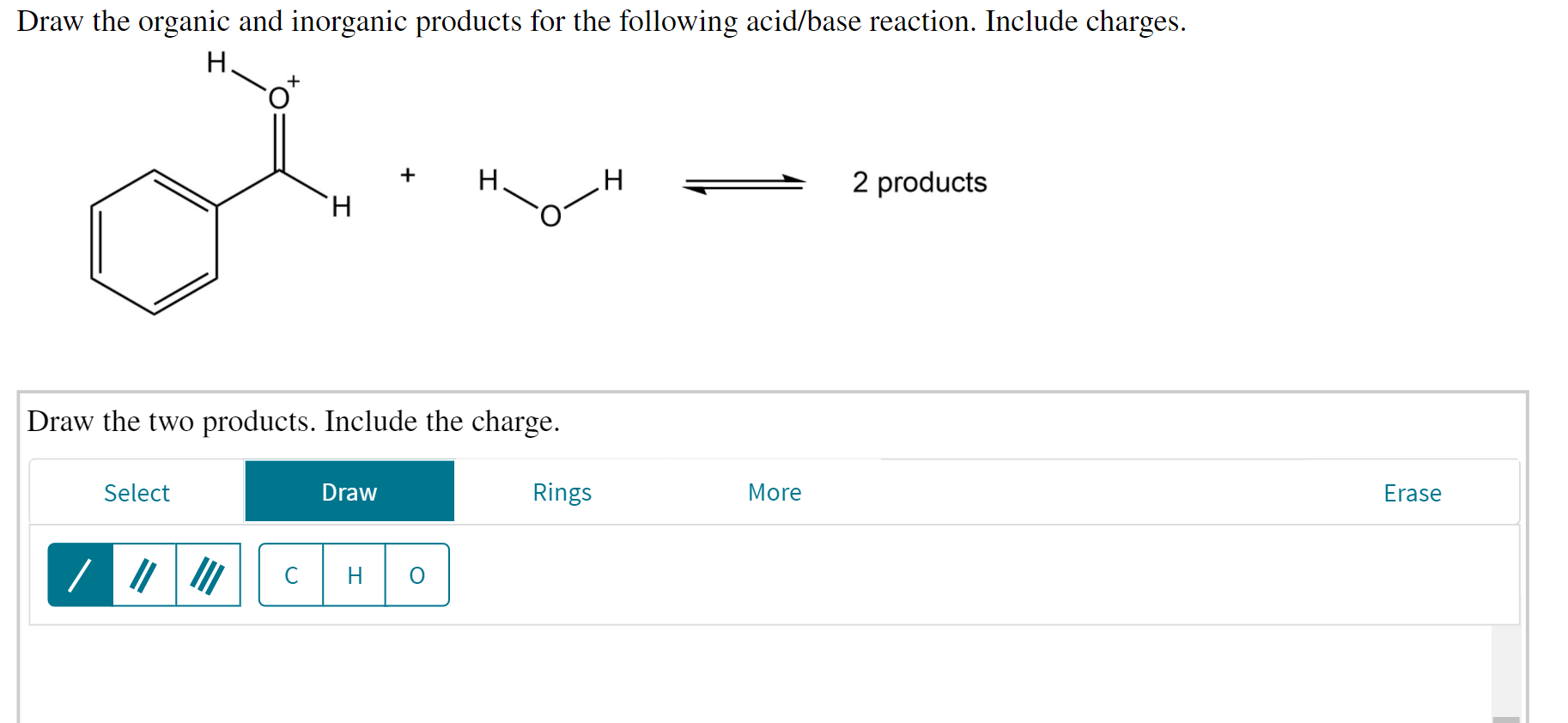Draw The Organic And Inorganic Products
Draw The Organic And Inorganic Products - The resulting products will depend on the specific acid and base involved. For the given sn2 reaction, draw the organic and inorganic products of the reaction, and identify the nucleophile,. Web draw the organic and inorganic products of the reaction. A student has a mixture of phenol and benzoic acid (c 6 h 5 co 2 h). H select z / ||| ||| h h draw the two products. This is the product formed when the nucleophile. Web solved draw the organic and inorganic products for the | chegg.com. Web although carbon nanotubes and fullerenes are allotropes of carbon, their material properties are somewhat foreign to many organic chemists, who traditionally. In an sn2 reaction, the nucleophile attacks the substrate from the opposite side of the leaving. In most cases, formation of the most stable alkene is favoured. Web the base will accept a proton from the acid, forming a hydronium ion ($\ce{h3o+}$) and a negatively charged organic species. Draw the organic and inorganic products for the following. Web draw the possible products. Now, let's draw the organic and inorganic products of the reaction: Web draw the products of this reaction. Web draw the organic and inorganic products of the reaction. The sooner you can get into the habit of recognizing bond. We're told that we have an s and 2 reaction, so this is a substitution, and this has what we call a concerted mechanism, so that this happens all in one step. The organic product will be the conjugate. The sooner you can get into the habit of recognizing bond. We're told that we have an s and 2 reaction, so this is a substitution, and this has what we call a concerted mechanism, so that this happens all in one step. Web draw the organic and inorganic products for the following ac | quizlet. For the given sn2. H select z / ||| ||| h h draw the two products. The organic product will be the conjugate base of. The sooner you can get into the habit of recognizing bond. Web draw the possible products. Now, let's draw the organic and inorganic products of the reaction: Web predict and draw the products of following reaction and use curved arrow to show the mechanism. Identify the nucleophile, substrate, and leaving group: The resulting products will depend on the specific acid and base involved. Web draw the products of this reaction. If one product is more stable, circle it. Web draw the organic and inorganic products for the following acid/base reaction. In an sn2 reaction, the nucleophile attacks the substrate from the opposite side of the leaving. Web draw the products of this reaction. We're told that we have an s and 2 reaction, so this is a substitution, and this has what we call a concerted mechanism, so. We're told that we have an s and 2 reaction, so this is a substitution, and this has what we call a concerted mechanism, so that this happens all in one step. H select z / ||| ||| h h draw the two products. Web draw the organic and inorganic products for the following acid/base reaction. Web solved draw the. Web draw the organic and inorganic products for the following ac | quizlet. Without knowing the specific acid and base in the reaction, it is impossible to draw the organic. Web draw the organic and inorganic products of the reaction. In an sn2 reaction, the nucleophile attacks the substrate from the opposite side of the leaving. Web solved draw the. Web draw the organic and inorganic products for the following acid/base reaction. Web at least 80% of the reactions students in organic chemistry fall into one of these four categories. Web the base will accept a proton from the acid, forming a hydronium ion ($\ce{h3o+}$) and a negatively charged organic species. Web draw the products of this reaction. We're told. The resulting products will depend on the specific acid and base involved. This is the product formed when the nucleophile. Web draw the possible products. For the given sn2 reaction, draw the organic and inorganic products of the reaction, and identify the nucleophile, substrate, and leaving group. H select z / ||| ||| h h draw the two products. For the given sn2 reaction, draw the organic and inorganic products of the reaction, and identify the nucleophile, substrate, and leaving group. Web although carbon nanotubes and fullerenes are allotropes of carbon, their material properties are somewhat foreign to many organic chemists, who traditionally. Web solved draw the organic and inorganic products for the | chegg.com. The resulting products will depend on the specific acid and base involved. Draw the organic and inorganic products for the following. Web predict and draw the products of following reaction and use curved arrow to show the mechanism. The sooner you can get into the habit of recognizing bond. H select z / ||| ||| h h draw the two products. Now, let's draw the organic and inorganic products of the reaction: Draw the organic and inorganic. If h + is the acid as in previous examples, it is rather. Web draw the possible products. Web at least 80% of the reactions students in organic chemistry fall into one of these four categories. Draw the organic and inorganic products for the following acid/base reaction. Identify the nucleophile, substrate, and leaving group: The compounds could be separated via an acid/base extraction using what base?
For The Following Sn2 Reaction Draw The Organic And Products
Solved Draw the organic and products for the
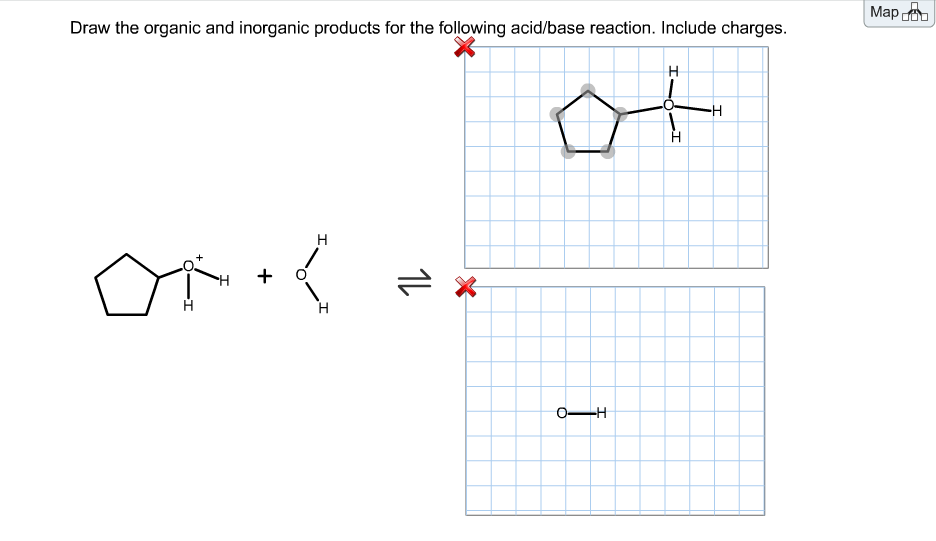
Solved Draw The Organic And Products For The Fo...
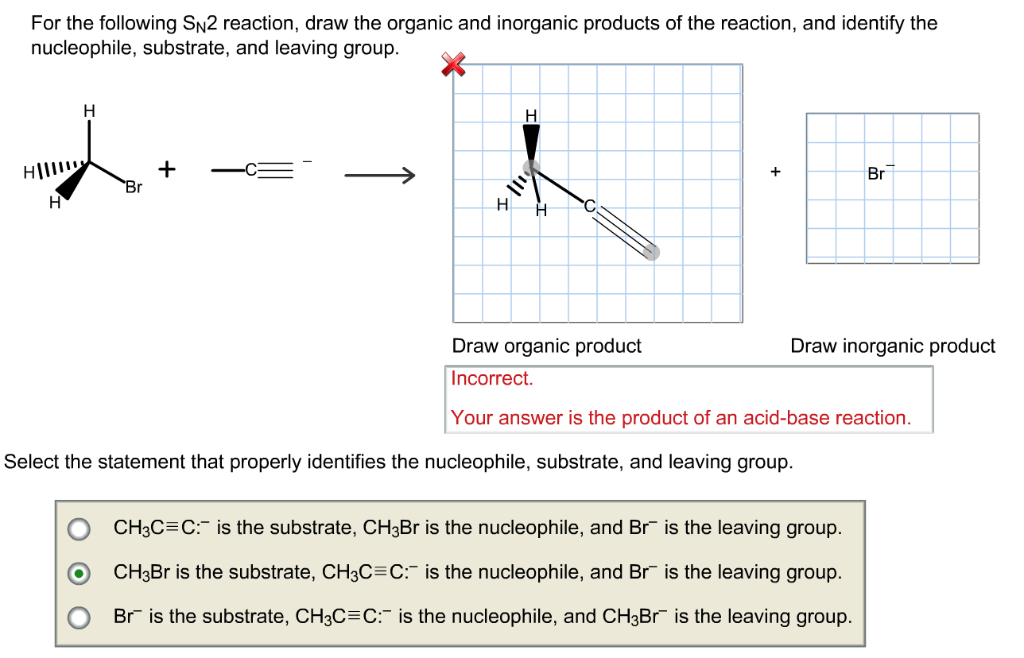
For The Following Sn2 Reaction Draw The Organic And Products
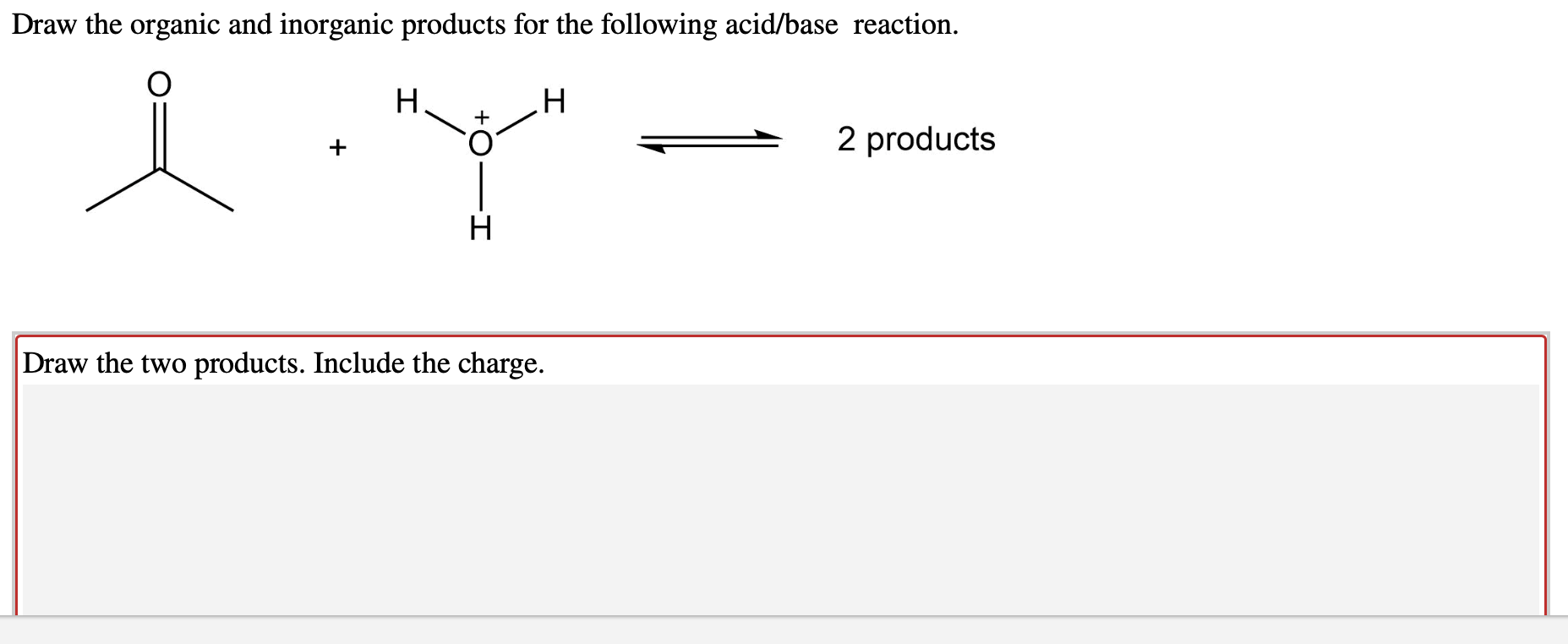
Solved Draw the organic and products for the

Draw the organic and products for the following acid/base
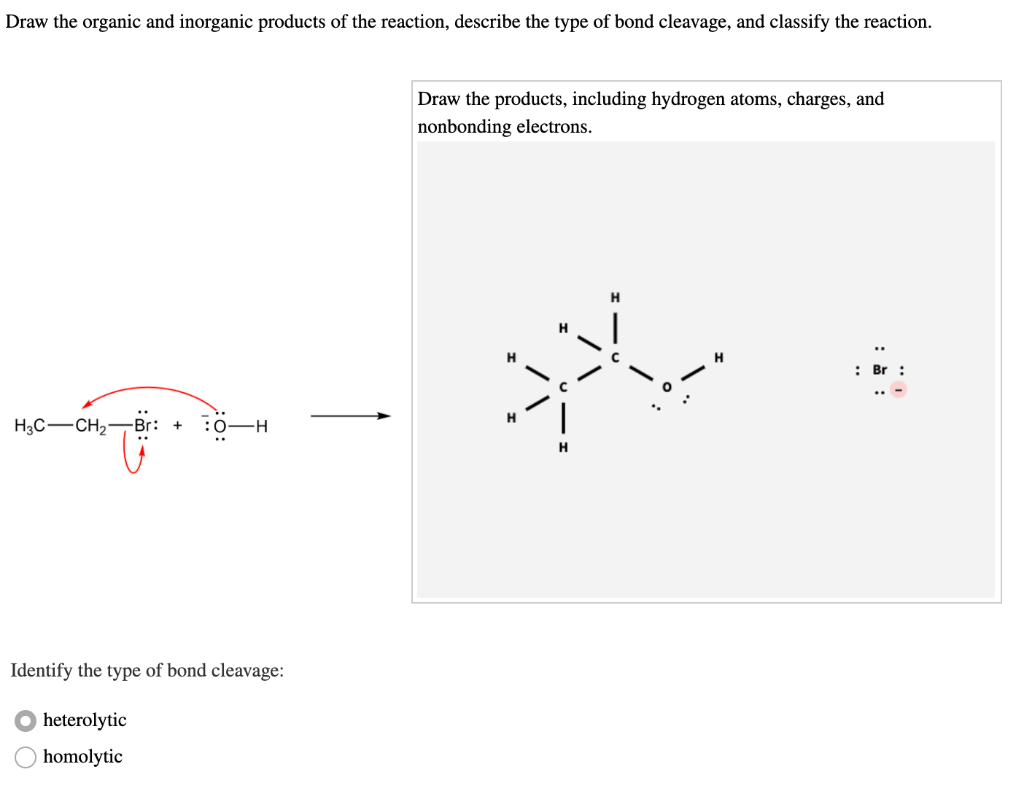
Solved Draw the organic and products of the
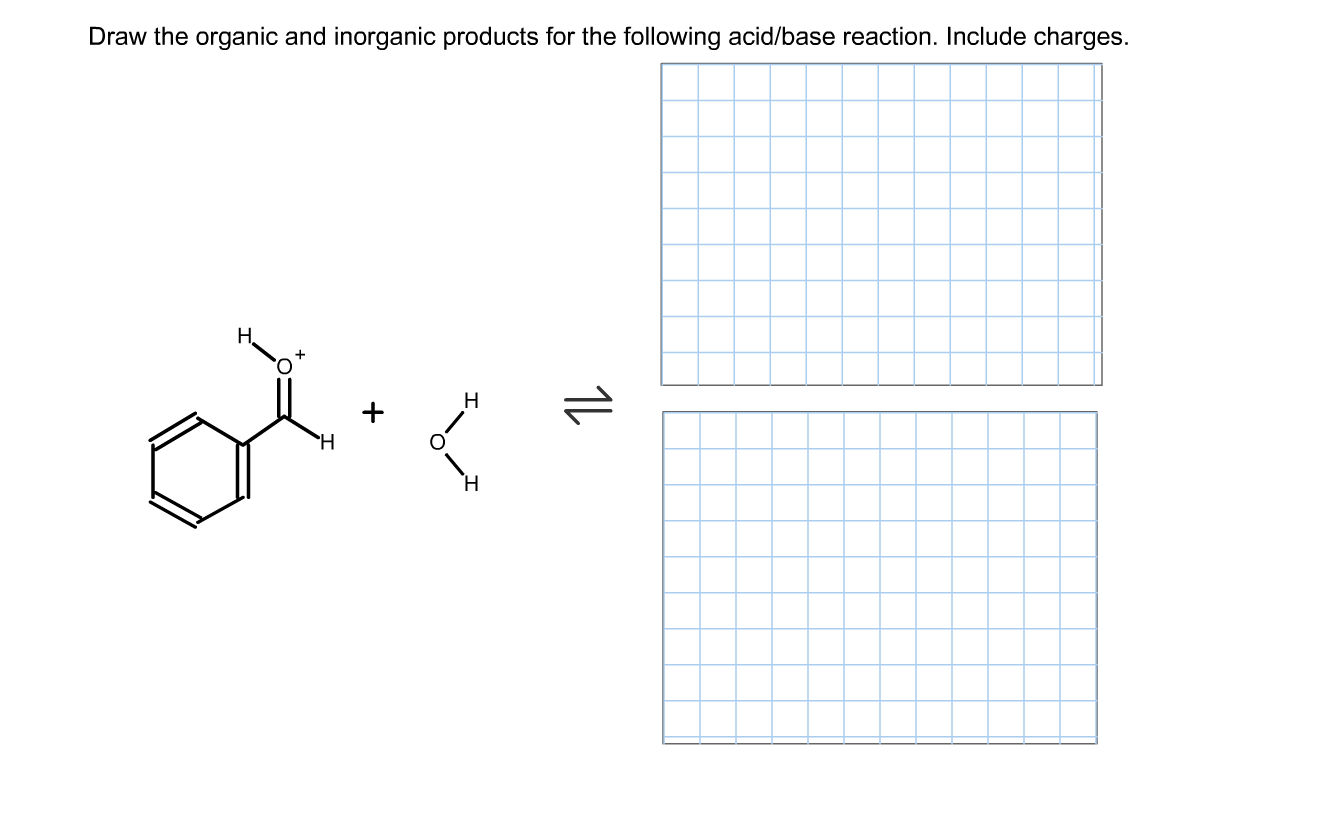
Solved Draw the organic and products for the
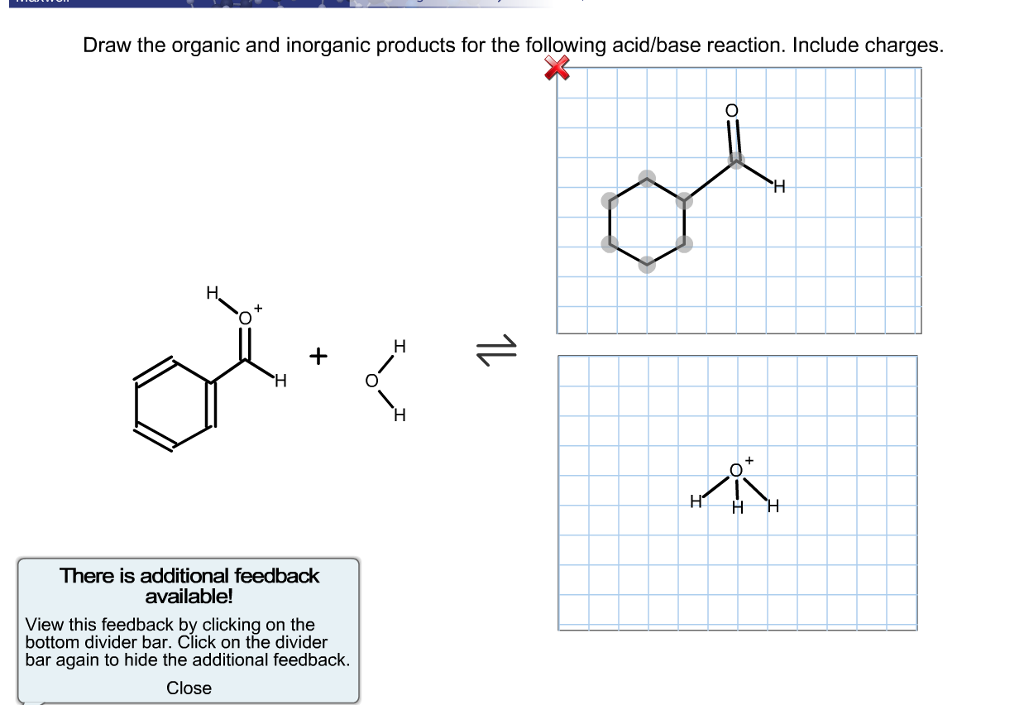
Solved Draw the organic and products for the

For The Following Sn2 Reaction Draw The Organic And Products
In Most Cases, Formation Of The Most Stable Alkene Is Favoured.
In An Sn2 Reaction, The Nucleophile Attacks The Substrate From The Opposite Side Of The Leaving.
Web The Base Will Accept A Proton From The Acid, Forming A Hydronium Ion ($\Ce{H3O+}$) And A Negatively Charged Organic Species.
Web Draw The Organic And Inorganic Products Of The Reaction.
Related Post:
